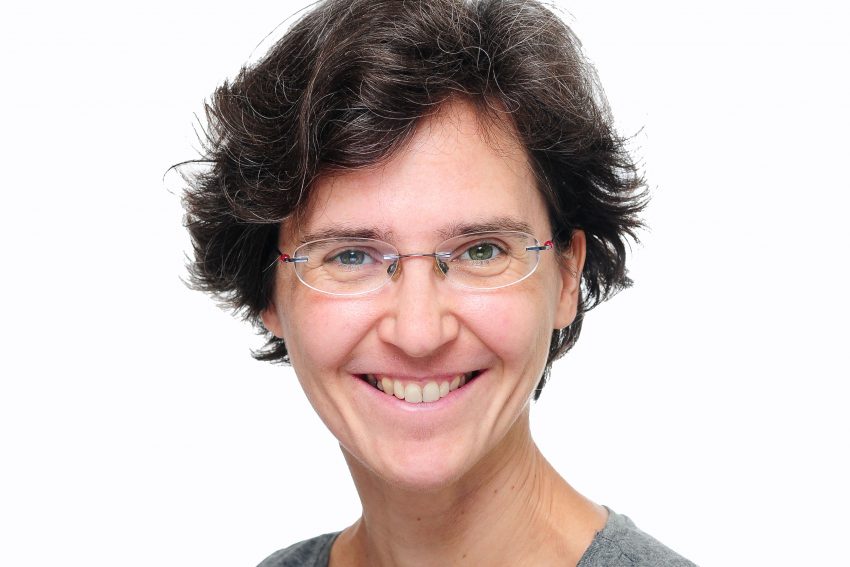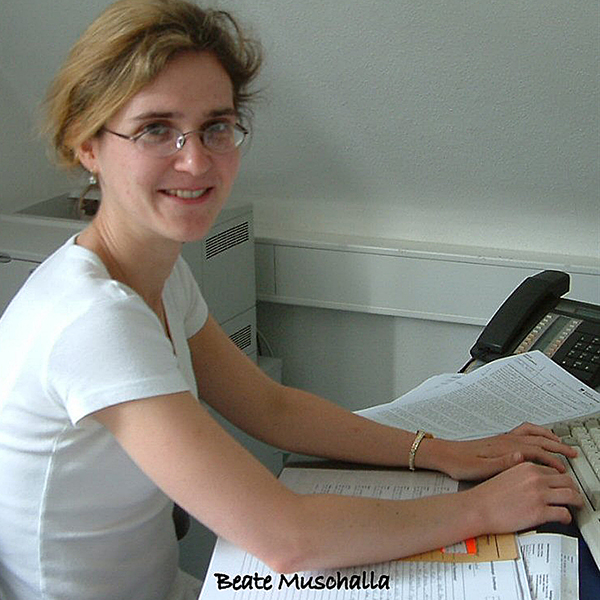First Generation Academics introduce themselves Prof. Beate Muschalla as Role Model at TU Braunschweig
The project Role Models: First Generation Academics at TU Braunschweig makes social diversity at our university visible within the framework of Focus 2022: First Generation Students, enables people to get to know different educational biographies, and creates academic role models for First Generation Students. Through short interviews, various members of TU Braunschweig, who were the first in their family to study, introduce themselves.

Professor Beate Muschalla heads the Division of Clinical Psychology, Psychotherapy and Diagnostics at the Institute of Psychology. Photo credit: StudioLine Photography Potsdam
What kinds of situations made you conscious of being a first generation academic?
At the beginning of my studies, I received very practical feedback from those around me. For example, how I was going to earn money with it, but also recognition for the way I organised my studies myself.
What hurdles have there been in your career so far? What helped you to overcome them?
Looking back, the biggest hurdle was not to pursue different disciplines in parallel to keep my options open, but to commit to one and then pursue that goal: Finishing psychology, and then learning a concrete profession and becoming a behavioural therapist. It took a few days to realise that. Immediately after graduating from high school, I was not at all aware of my abilities and the opportunities they offered. And then there were always the usual hurdles like rejections and refusals. Things you have to learn to accept as normal instead of being intimidated by them. You have to learn to move on and develop yourself in the process.
Mentoring by older people was important for me. During my Abitur time and during my compulsory internship, I found people who accompanied me for years and showed me directions. In the writing workshop with my old literature professor, we sat as five young and older writers in her living room and talked about our first literary text attempts over tea, biscuits and fruit, surrounded by her many bookshelves.
Later, during my psychotherapy training in my clinic internship, I had many opportunities to directly watch my boss at work. So I was able to learn a lot from observation during rounds, meetings and congresses. This gave me a lot of concrete knowledge, for example about how to interact with each other in science and in the clinic. Or about why it is not the lectures but the social evening that is important at a conference. In other words, everything that is not in a textbook.
From today’s perspective, what message would you give your student self?

Professor Beate Muschalla during her training period in a rehabilitation clinic. Photo credit: Rehazentrum Seehof
Actively approach people who you think are interesting and from whom you think you can learn something. Observe, get to know different perspectives and lifestyles, and form your own opinion. Get to know your skills and do what you do best. It is not so important what you do in (professional) life, but that you do it well.
What personal resources can you rely on?
My skills, knowledge and experience. I grew up as an only child with my parents in Kleinmachnow near Potsdam in the 1980s. For as long as I can remember, I have taken my school-related affairs into my own hands. I am grateful to my parents for passing on important values to me: Groundedness and pragmatism, perseverance and reliability.
When did you decide to study and what influenced this decision?
During my Abitur, on the one hand I was happy that school was coming to an end. But I was also curious about possibilities to continue learning in a more self-determined way. I was fascinated by foreign cultures and antiquity. Besides, the university was only 30 minutes away from my home by bike.
Thank you very much for the interview!
